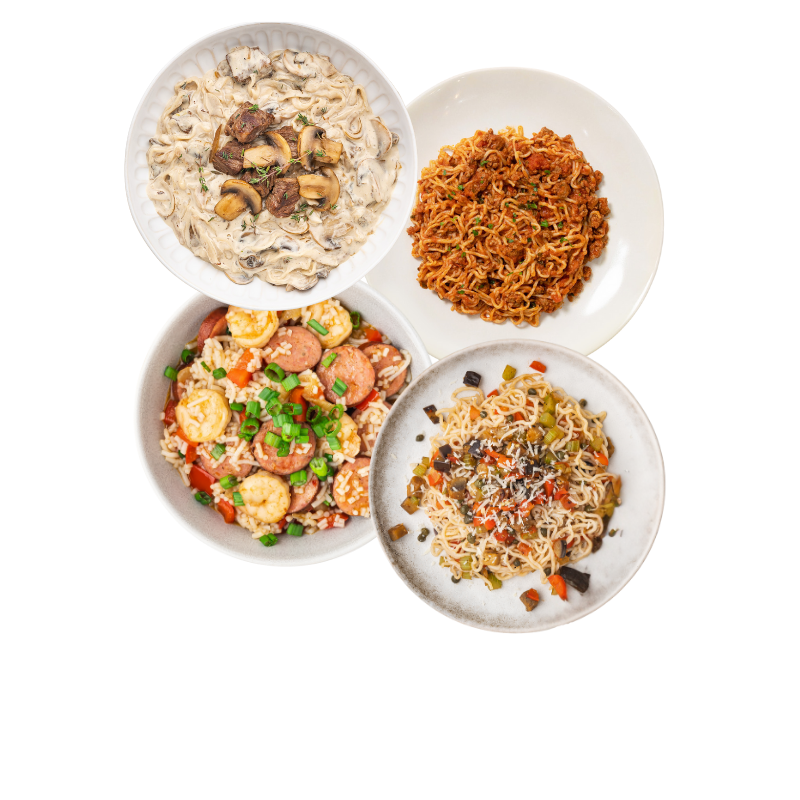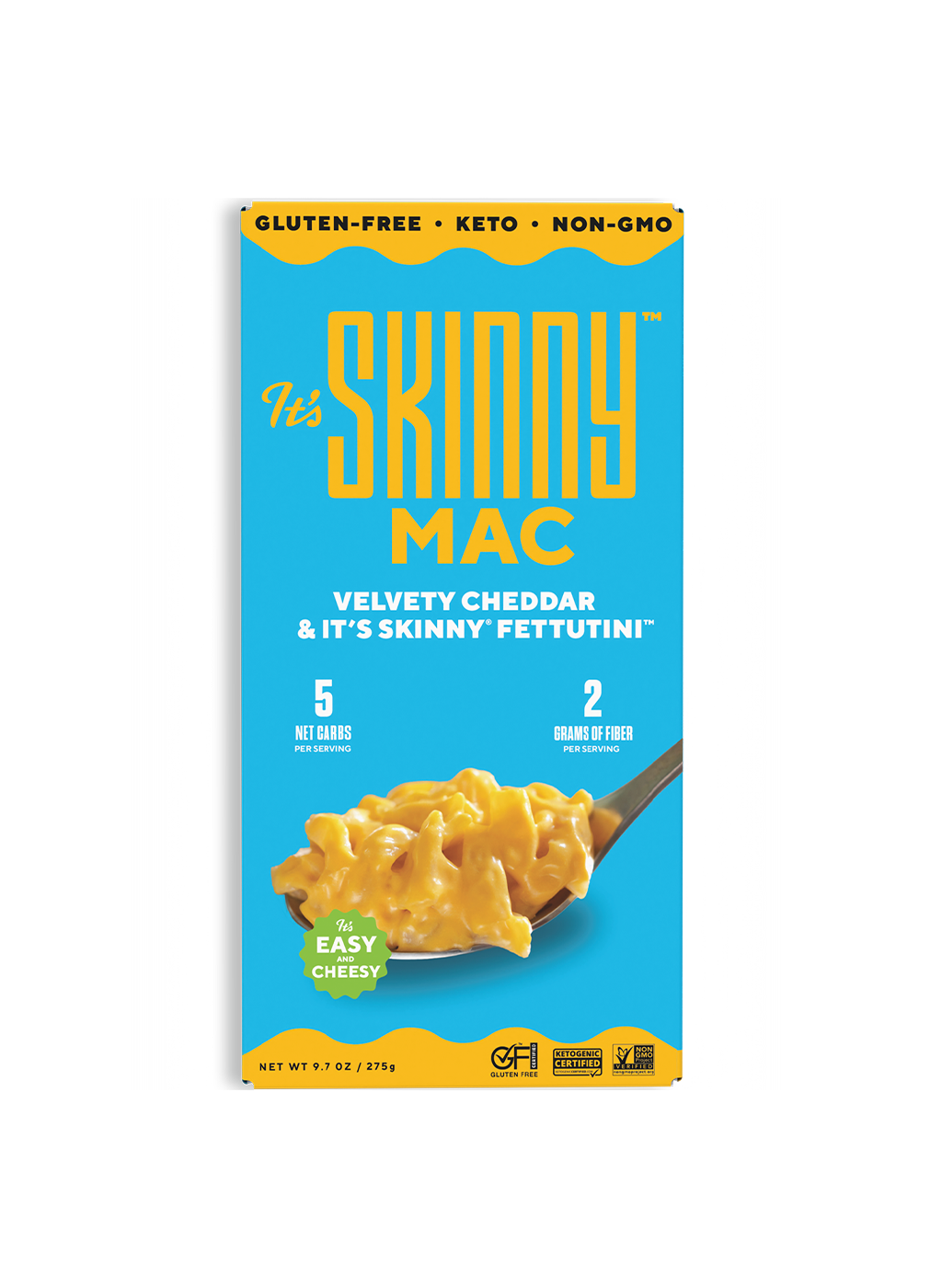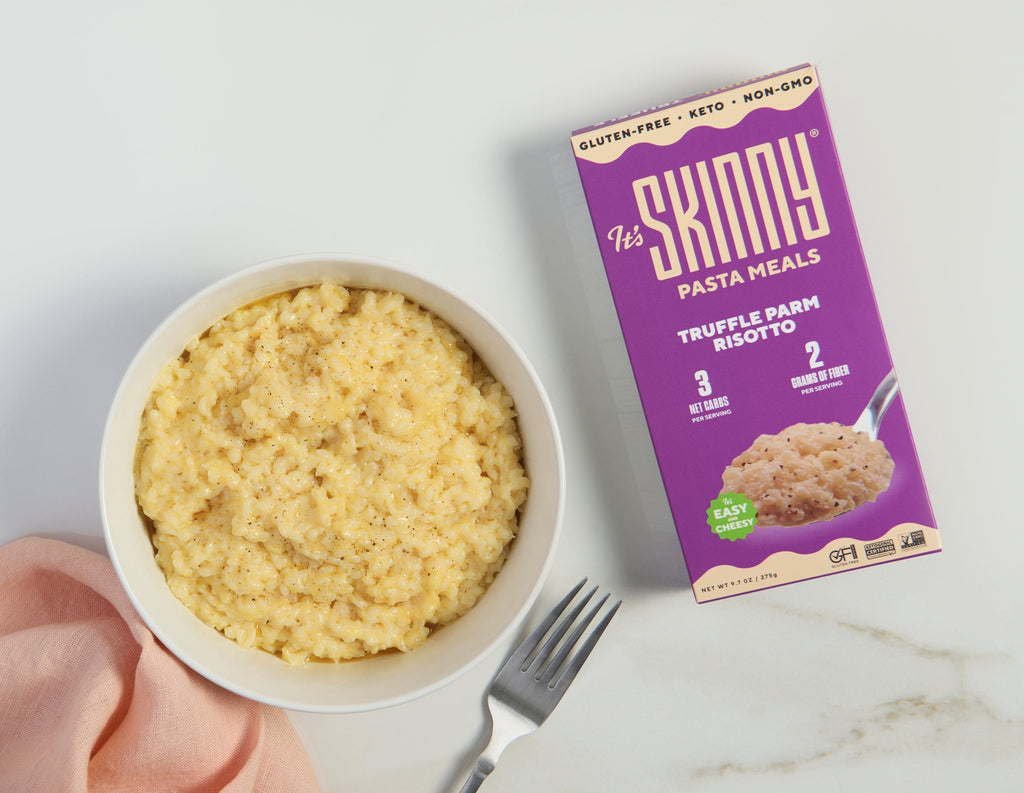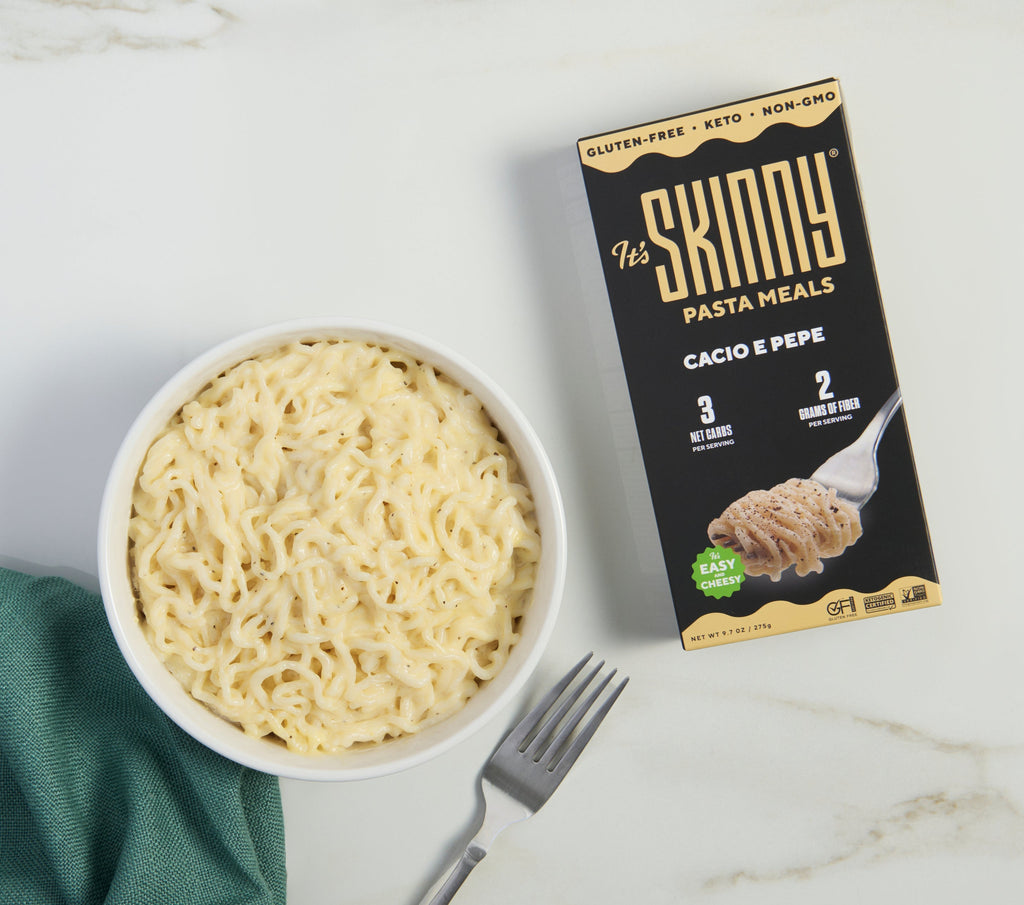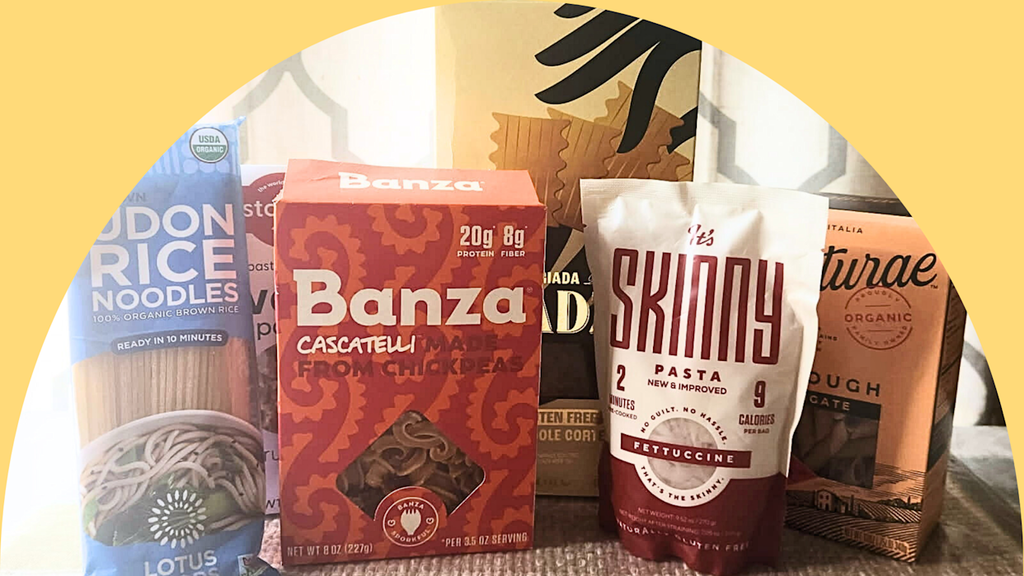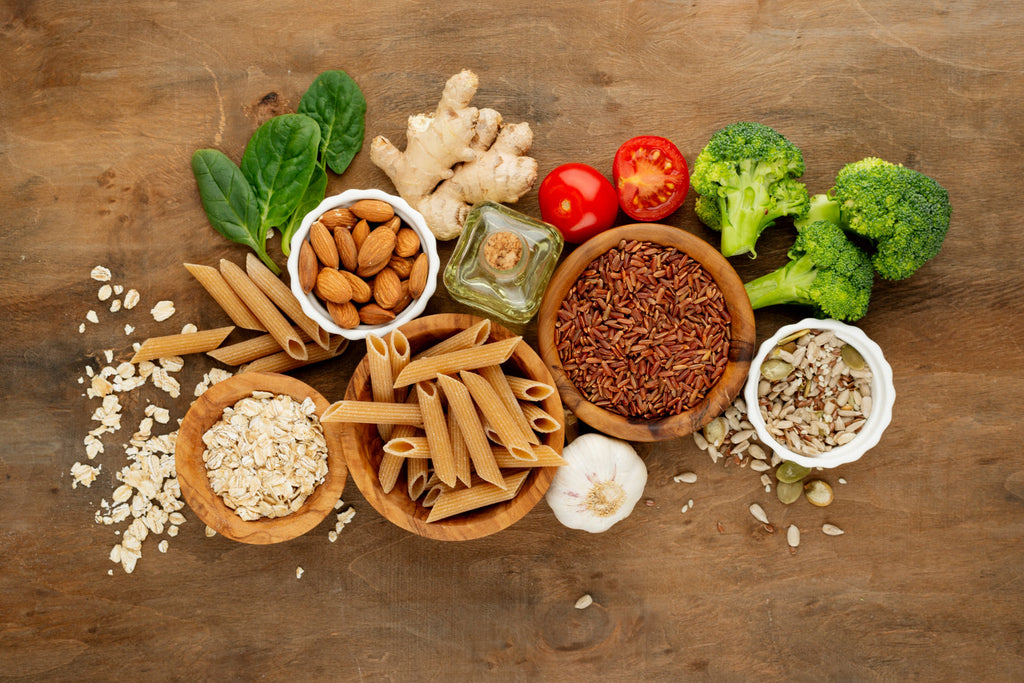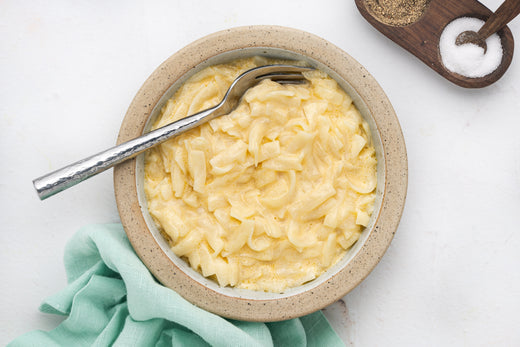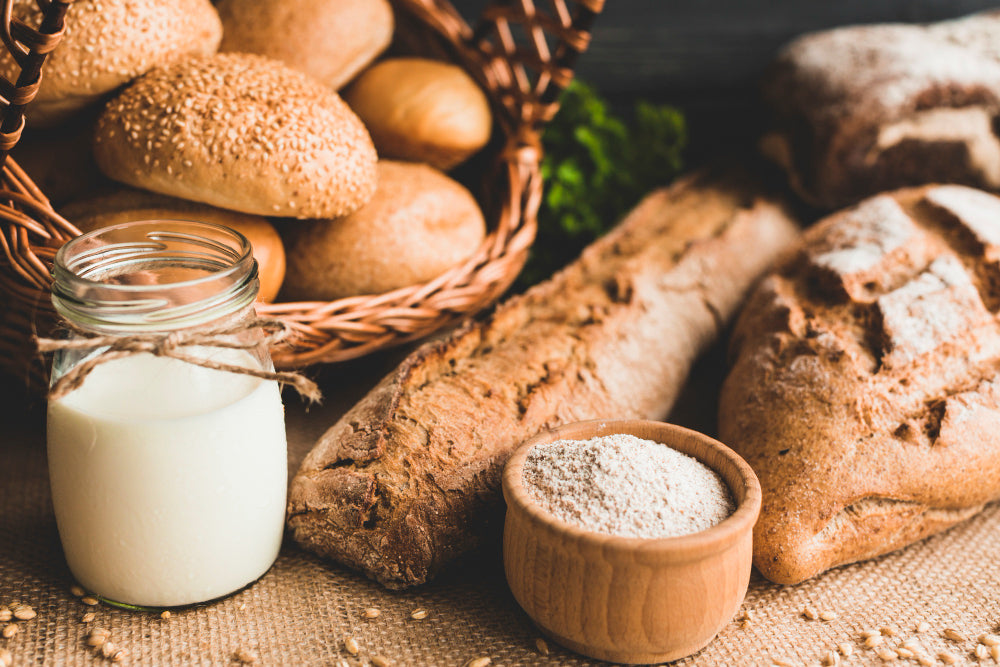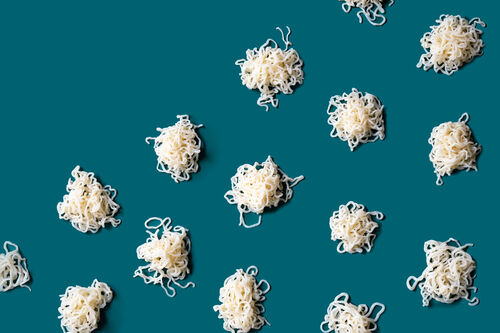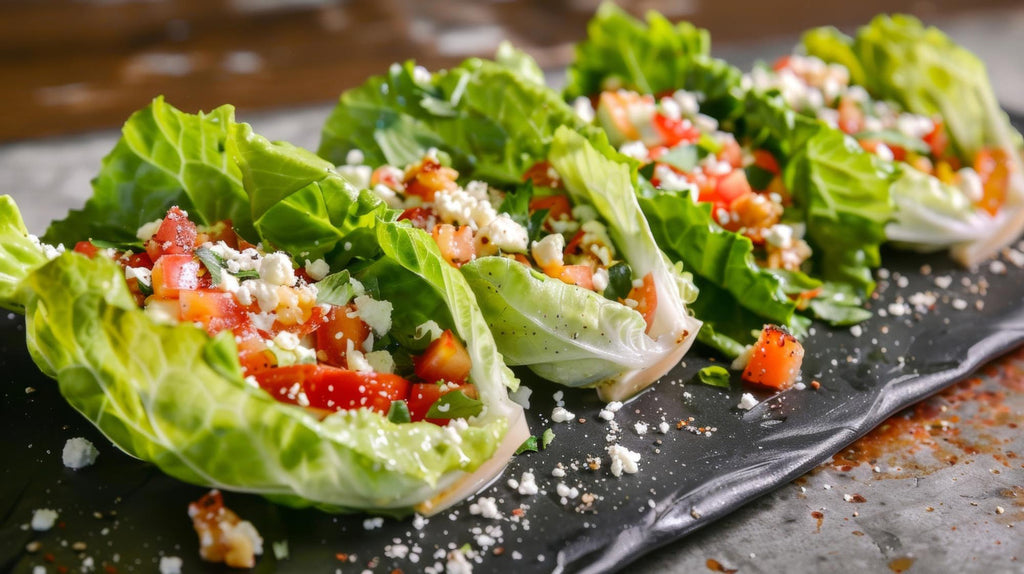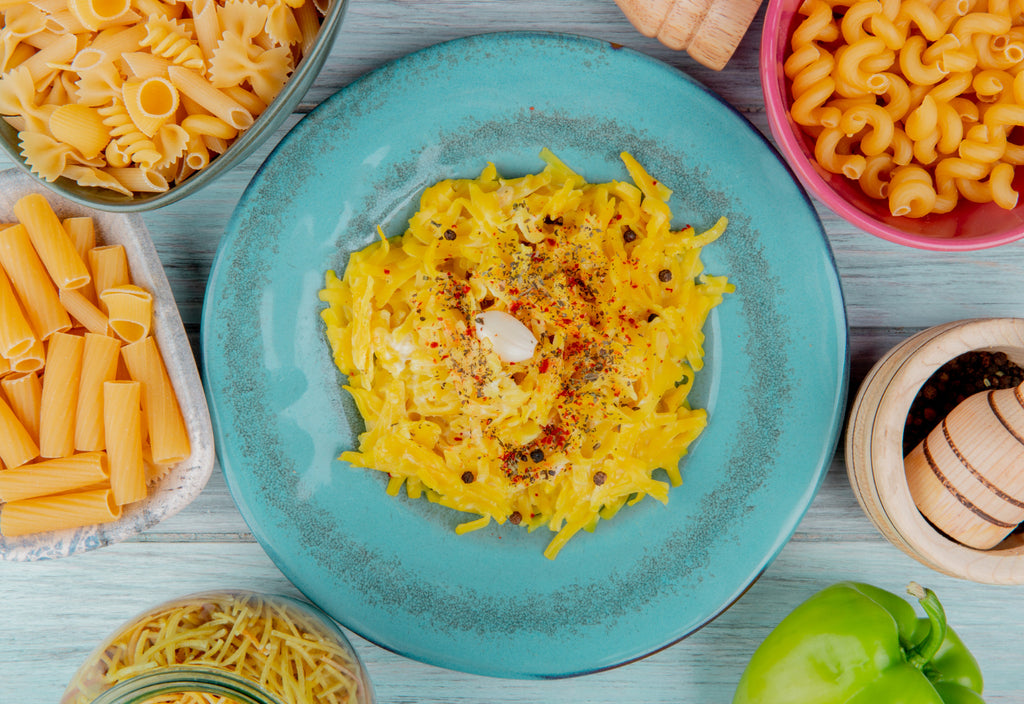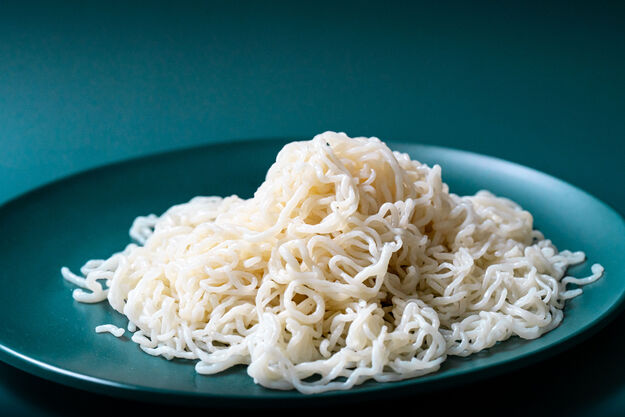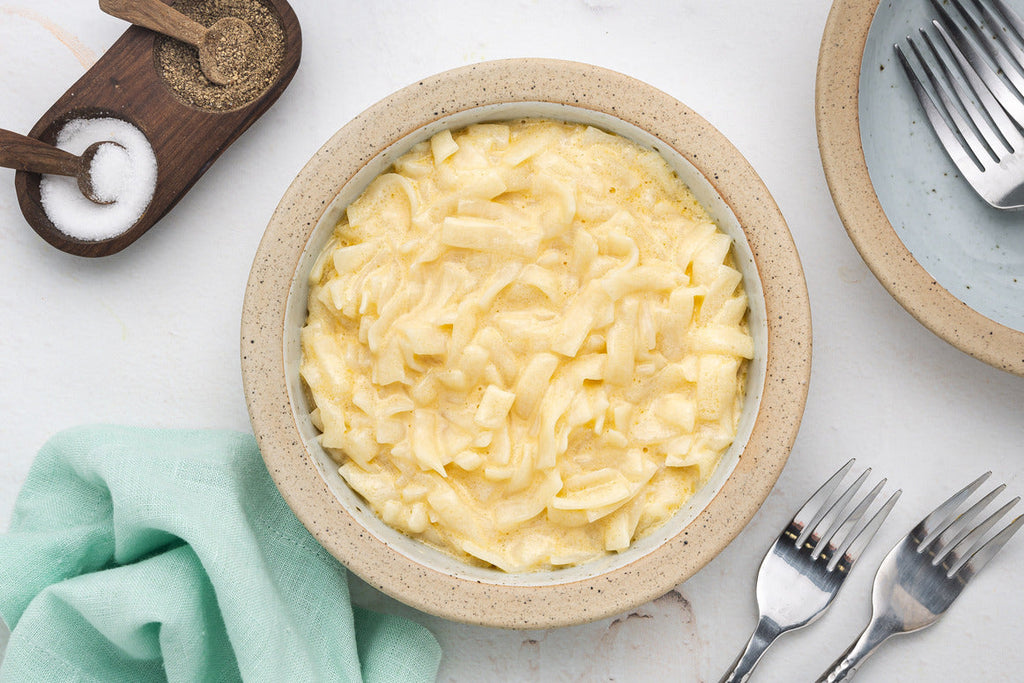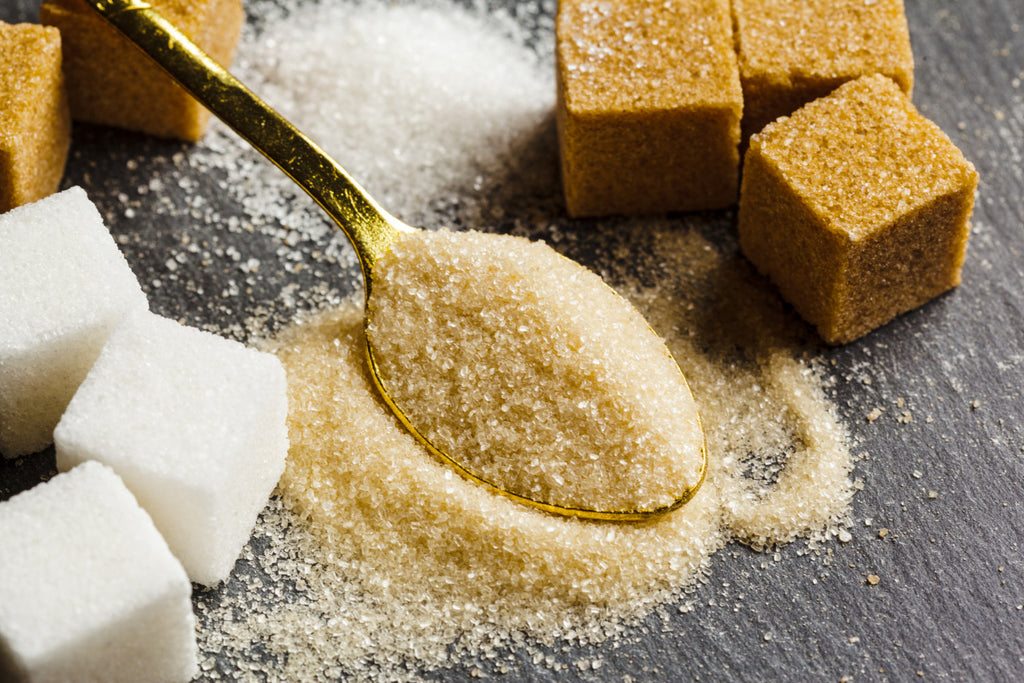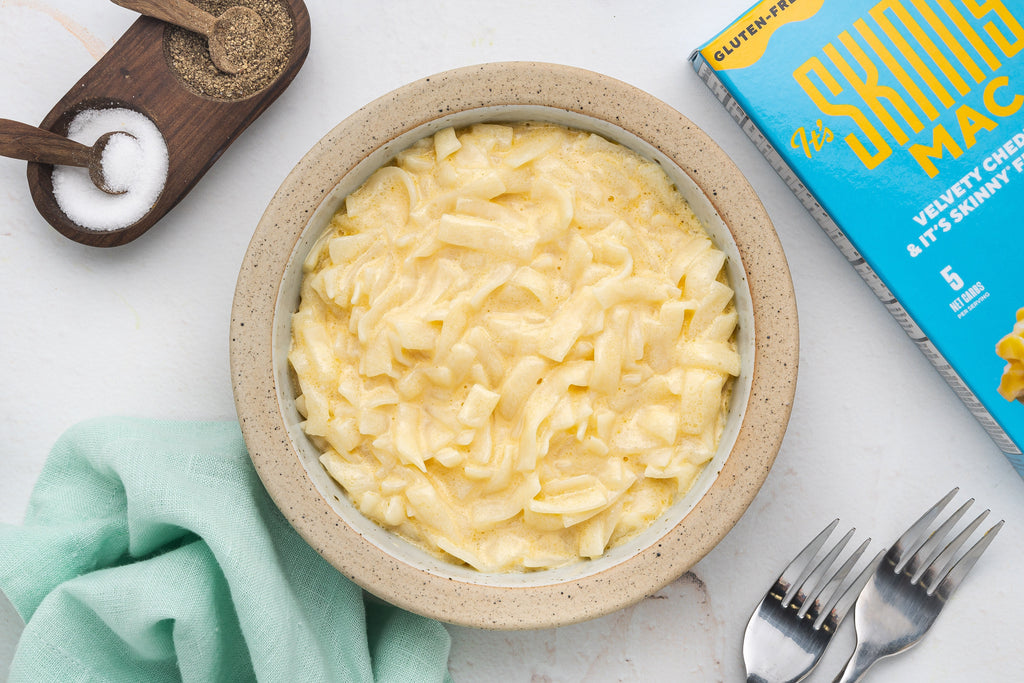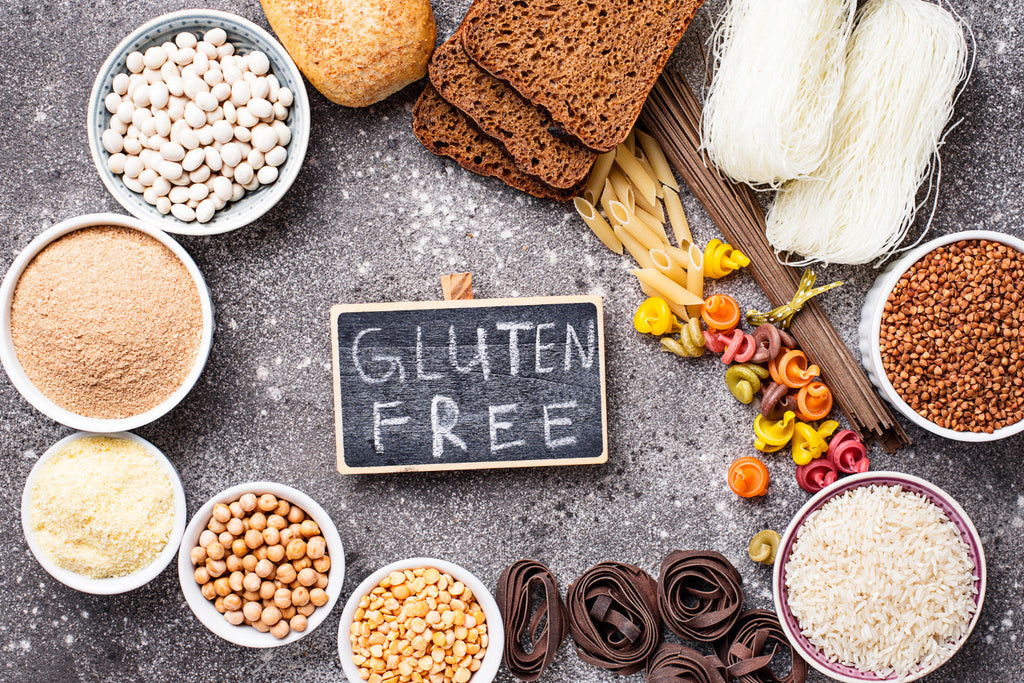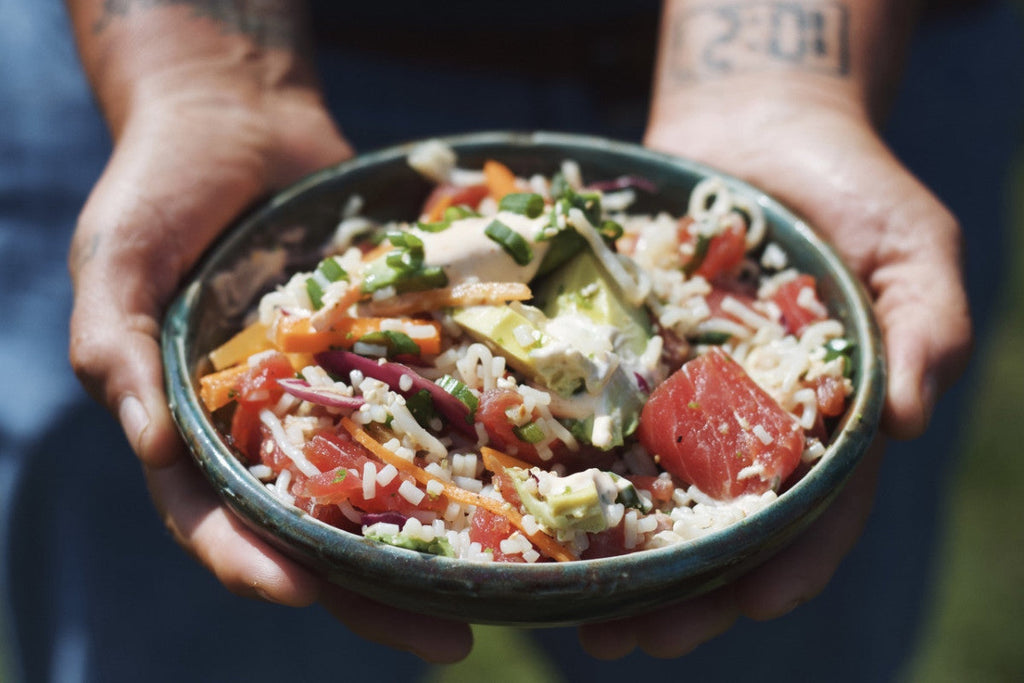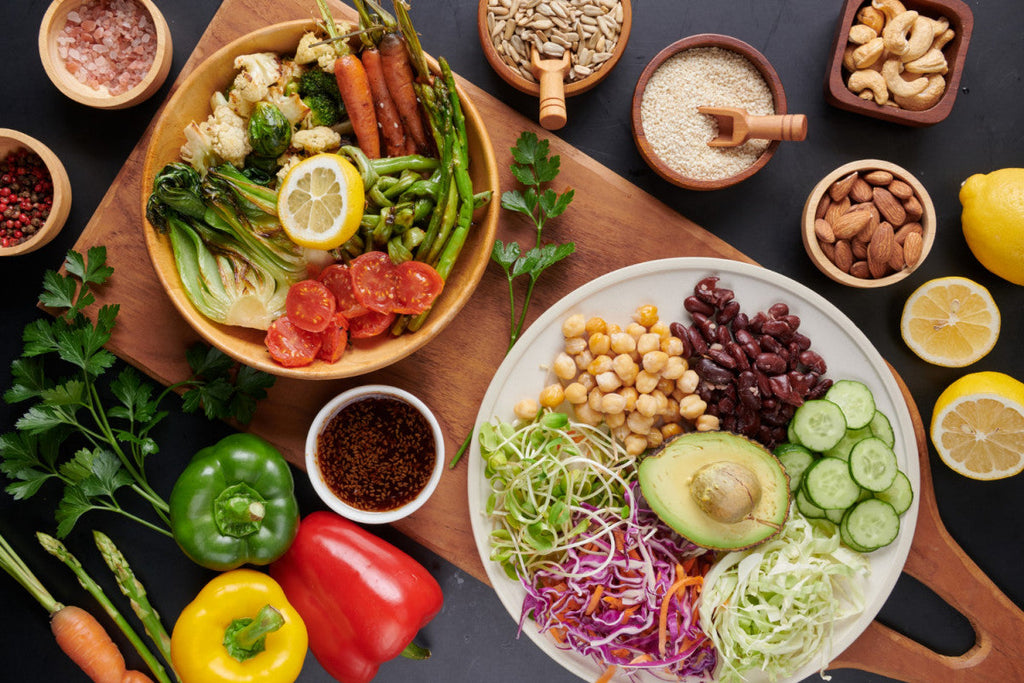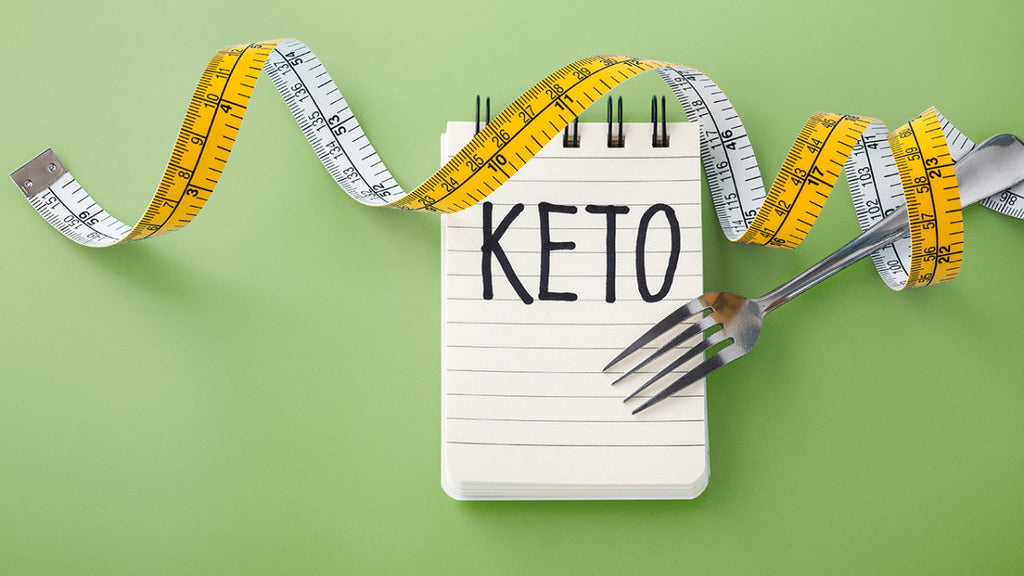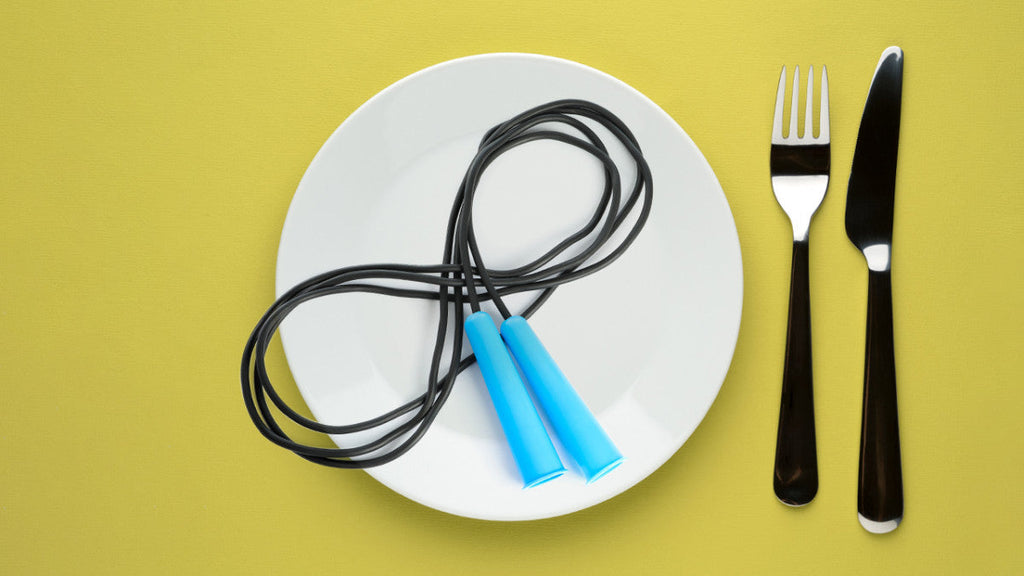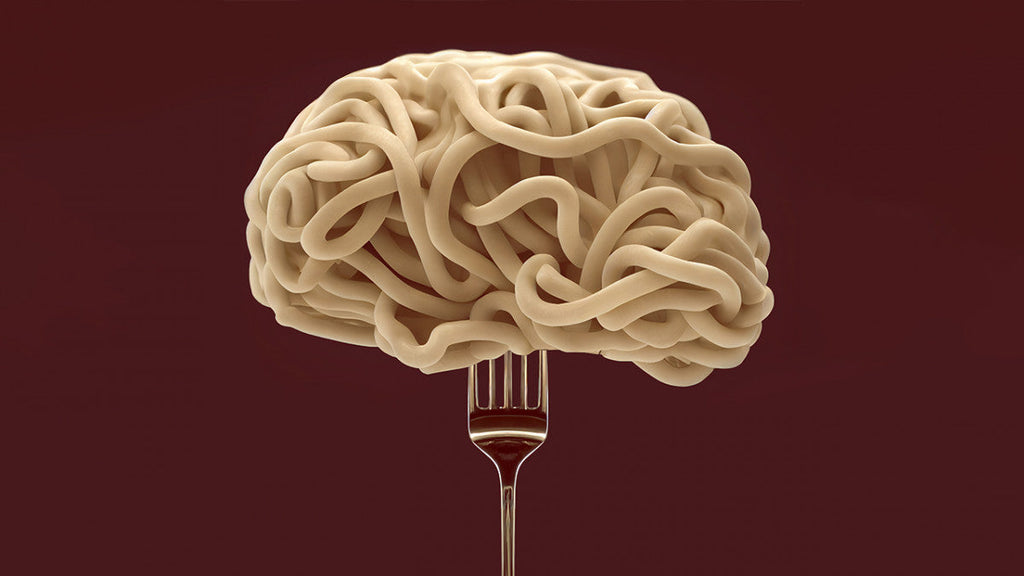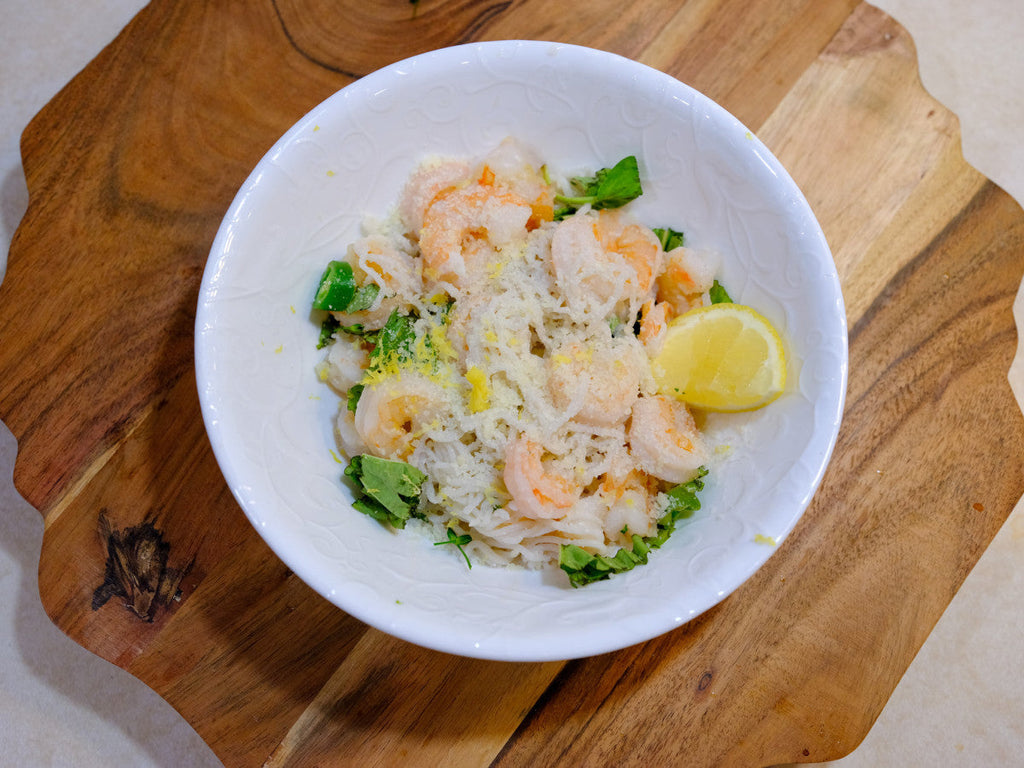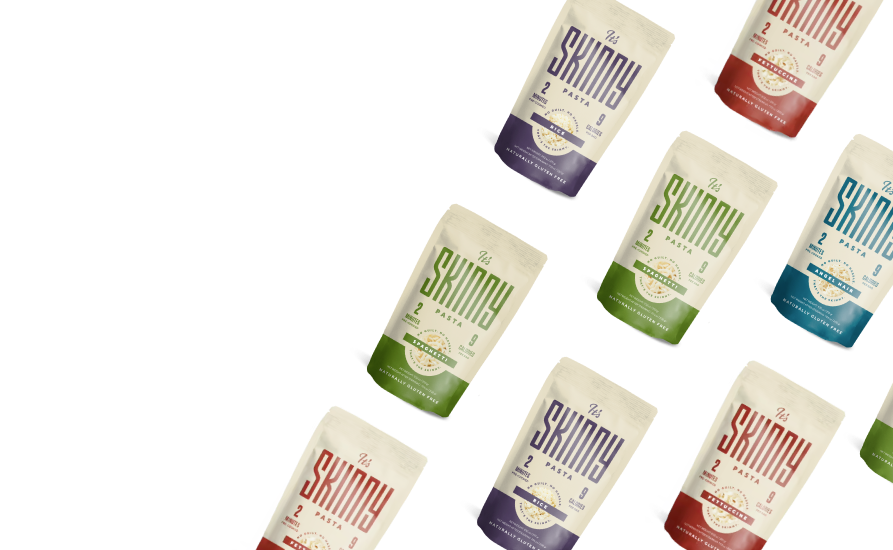What You Should Know About the Mediterranean Diet
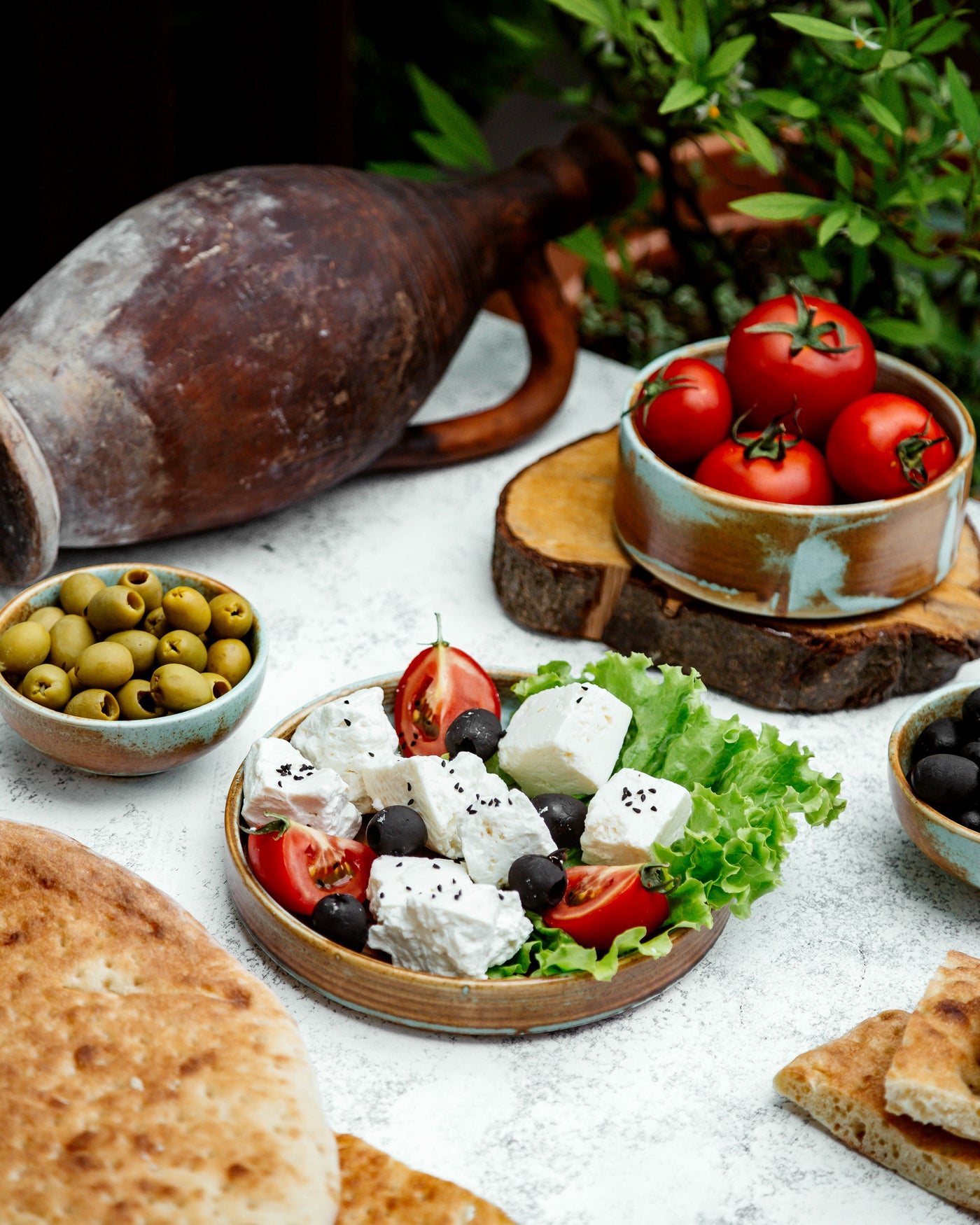
While there are several pathways to healthy eating, the Mediterranean diet is often ranked very high on “best diet” lists.
With heart-healthy ingredients and flavorful meals, the Mediterranean way of eating emphasizes whole foods like fruits, vegetables, healthy fats, and lean proteins. Today, we’ll explore the core Mediterranean diet foods and how to build Mediterranean meal plans that support your health goals (including a low-calorie way to enjoy pasta)!
What Is the Mediterranean Diet?
The Mediterranean diet is not a rigid food plan. It’s more of a shift in your approach to eating, inspired by the traditional foods of countries like Greece, Italy, and Spain.
The diet focuses mainly on plant-based ingredients, olive oil, seafood, and whole grains. It's the whole grains that can be challenging if you're gluten-free or if you're watching carbs.
Carbohydrates are one of the more challenging parts of the Mediterranean diet. However, there are innovative ways to combine this approach to eating with keto, low-carb, and gluten-free diets while still enjoying all the health benefits.
What are the core Mediterranean diet foods? Again, nothing is "forbidden," making the diet attractive, with the focus being on whole foods for weight loss and health benefits.
Fill up on these Mediterranean diet foods:
-
Olive oil
-
Nuts and legumes
-
Fresh fruits and vegetables
-
Fish and seafood
-
Whole, minimally processed grains
-
Herbs and spices.
Generally, people who follow the Mediterranean diet avoid processed foods. They eat minimal red meat with poultry and dairy in moderation. Although these items are still “allowed” on the diet, the goal is to shift them from the center of the plate to more of a garnish.
Mediterranean meats such as sausage and prosciutto are often highly flavorful. The same is true for dairy: Parmesan, Asiago, and feta pack a lot of flavors in a small amount. It’s certainly okay to use these ingredients to enhance your Mediterranean recipes and give them some extra oomph.
Benefits of the Mediterranean Diet
Why would someone want to follow the Mediterranean way of eating? There are several health benefits, especially given the wide variety of ingredients in Mediterranean cooking.
Foods consumed in Spain, Italy, and Greece support heart health and combat inflammation. Many Mediterranean diet foods aid in weight management while promoting longevity and brain health. Better still, many ingredients are familiar and pretty easy to work with.
For heart health, the Mediterranean diet encourages extra virgin olive oil, rich in monounsaturated fats and antioxidants. Olive oil consumption is sometimes connected to lower LDL (bad cholesterol) numbers.
Fatty fish is another heart-healthy ingredient that is a staple of the Mediterranean diet. Fish like salmon, sardines, and mackerel are high in omega-3 fatty acids and are excellent for the body, especially the heart.
Nuts and seeds like walnuts and flax help balance cholesterol and reduce inflammation. Legumes like beans, lentils, and chickpeas are high in fiber, helping you keep your blood pressure and cholesterol down.
Other diet components are great for their anti-inflammatory properties and tendency to reduce oxidative stress. Berries like blueberries and strawberries contain anthocyanins. Tomatoes are high in lycopene and have vitamin C, just like their leafy green counterparts—spinach, arugula, and kale. These greens also contain polyphenols, vitamin A, and other beneficial nutrients.
Garlic and onions—two prevalent ingredients in Mediterranean cooking—have sulfur compounds widely known as anti-inflammatories. The array of vegetables on the Mediterranean diet includes zucchini, eggplant, peppers, and cucumbers, all high in volume and fiber, but low in calories.
Fruits like apples, citrus, pears, and grapes offer plenty of natural sweetness and are full of fiber to keep you satisfied. Other ingredients, such as wine (in moderation), include Resveratrol, a compound associated with brain and heart health. Finally, herbs and spices, such as rosemary, basil and turmeric, have healthful properties too.
Mediterranean Diet Meals with It’s Skinny
With all these delicious Mediterranean diet foods, you can see why it’s a popular diet. But after a few weeks of Mediterranean soups and salads, chances are high that your cravings might branch out to other options.
Traditional pasta and rice are part of the Mediterranean diet (in their whole grain forms), however it's very easy to overdo them. The pasta and rice components can be complicated for gluten- or carb-conscious people.
Here's the secret to following the Mediterranean diet in a low-carb way. Swap It's Skinny for traditional pasta and rice and you can enjoy all your favorite meals as low-calorie, low-carb, and even gluten-free.
It’s Skinny pasta comes in all your favorite shapes:
With all the options, it's easy to stay on track. It's Skinny shirataki pasta goes perfectly with all types of traditional Mediterranean sauces, beans, grilled vegetables, and seafood.
So how did we get all the deliciousness of al dente pasta into a product with only 9 calories per pack and ZERO net carbs?
The key ingredient in It’s Skinny is a root vegetable called konjac. Konjac root has a similar texture to a radish or a potato, full of satisfying glucomannan fiber. This type of fiber keeps your blood sugar levels steady so you can enjoy pasta without the carbohydrate spikes and crashes.
Konjac has long been enjoyed as food and medicine in Asian countries. However, it’s only recently caught on in the United States as shirataki noodles.
At It's Skinny, we've perfected the taste and texture of shirataki noodles to ensure you can eat without FOMO. There's no aftertaste, no strange odor, and the noodles are easy to work with—it's fast and more convenient than traditional pasta!
With It's Skinny, you don't need to boil water or get the timing right. Instead, you add the It's Skinny pasta to your other ingredients at the end of cooking. Once the noodles heat through (in 2-3 minutes), they're ready to serve!
It's Skinny goes with any meal calling for traditional pasta. A few Mediterranean-inspired meal ideas include:
-
It’s Skinny Angel Hair with tomatoes, olives, capers, and grilled shrimp.
-
It's Skinny Fettuccine tossed with sautéed spinach, lemon, garlic, and white beans.
-
Zucchini, chickpeas, and It's Skinny Spaghetti with an olive oil drizzle.
If you're looking for more great ideas for It's Skinny, don't miss our recipe database. We have all sorts of recipes, including Mediterranean-diet-friendly meals.
The Mediterranean Diet: Flexible, Versatile, Delicious
One of the best aspects of Mediterranean-style eating is the flexibility. The diet and eating style pair well with many other eating styles—everything from low-carb to keto, vegetarian, and gluten-free.
If you're avoiding wheat-based grains for any reason, It's Skinny is a fantastic solution. Moreover, it's easy to cook and comes together fast, perfect for busy weeknights.
Following a Mediterranean diet doesn't mean giving up on delicious foods or convenience. It's no wonder folks in the Mediterranean regions enjoy a long, healthy life. It's a simple, but healthful way of eating that can be adapted to your taste and your style.
With the right swaps like It’s Skinny, you can have all the classic Mediterranean flavors and modern health benefits!






